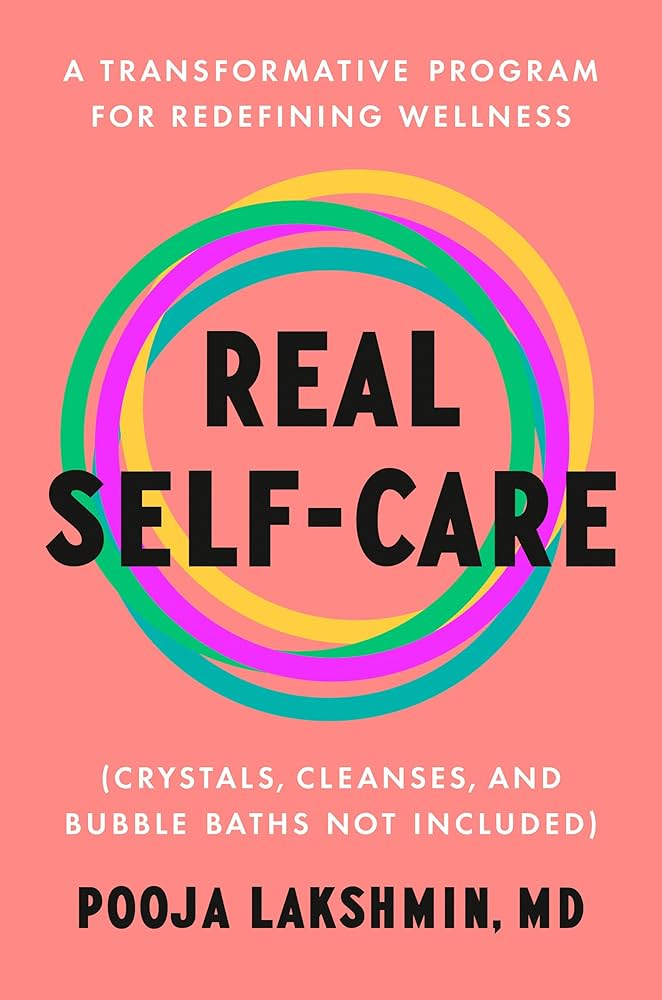“Self-Care feels like another productivity chore.
The kind that sets us up for burnout in the first place.”
— Dr. Pooja Lakshmin
Bubble baths, candles, tea. Cue the eye roll. Three things we are assured can contribute to our health and well-being, yet they don’t prepare us to thrive in the world today. Often, bubble baths, candles and tea don’t feel like “self-care,” they feel like yet another thing on our “To-Do” Lists.
Dr. Pooja Lakshmin, a perinatal psychiatrist, wrote, Real Self-Care: A Transformative Program for Redefining Wellness. The book explores what she argues we really need when it comes to self-care:
- To set boundaries
- To practice self-compassion
- To align our values
- To exercise our power
Beyond these principles, Dr. Lakshmin places self-care into two categories. The first she calls “Faux Self-Care,” think: essential oils, turmeric lattes, and bullet journals. “Real Self-Care,” she argues, comes from “threading the needle” between individual action and societal norms.

If reading the book feels like another thing on your list of “to-dos,” save yourself some time and listen to the 55-minute Ezra Klein podcast, “Boundaries, Burnout, and the Goopification of Self-Care.” And, if that feels too time consuming, we’ve summarized the 4 Principles in two downloadable charts below. One for everyone, and one for educators, with ideas you can use to practice and apply the principles:
Beyond the 4 Principles of Self-Care, the podcast is rich with discussions about:
- What self-care looks like for people whose identities are “on the outside.”
- Words matter. Paid parental leave is a “right”in many countries. In the US, it is a “benefit.”
- Encouragement about planting seeds of change in our communities
- Financial considerations of self-care (do you have a partner, family, can you afford help?)
- How do you make decisions about your life?
- Self-care is threaded through everything we do in our lives.
- Emotional exhaustion, depersonalization, decreased sense of meaning is what we feel, then why do we call it “burnout?”
- Why the term “self-care” makes some feel rage.
So what can we do with this information about transforming self-care?
Dr. Lakshmin recommends we “relitigate” our boundaries every 6 months to a year, and ask ourselves:
- What am I most proud of?
- What was the quality of what I engaged in and how did I show up?
Now, go take a bubble bath. 🙂
Resources and Recommendations
Set Boundaries, Find Peace: A Guide to Reclaiming Yourself by Nedra Glover Tewwab
Primal Scream by Elana Schlenker
Making Motherhood Work by Caitlyn Collins
Living Resistance by Kaitlin B. Curtice
Atomic Habits by James Clear
The Emotional Lives of Teenagers by Lisa Damour
The Fifth Season by N.K. Jemisin
Educator Wellness Courses
Discover how career planning, problem-solving, and prioritization make our days at school efficient and effective in our 3-credit, graduate-level continuing education course Course 5545: Surviving and Thriving as a Teacher.







